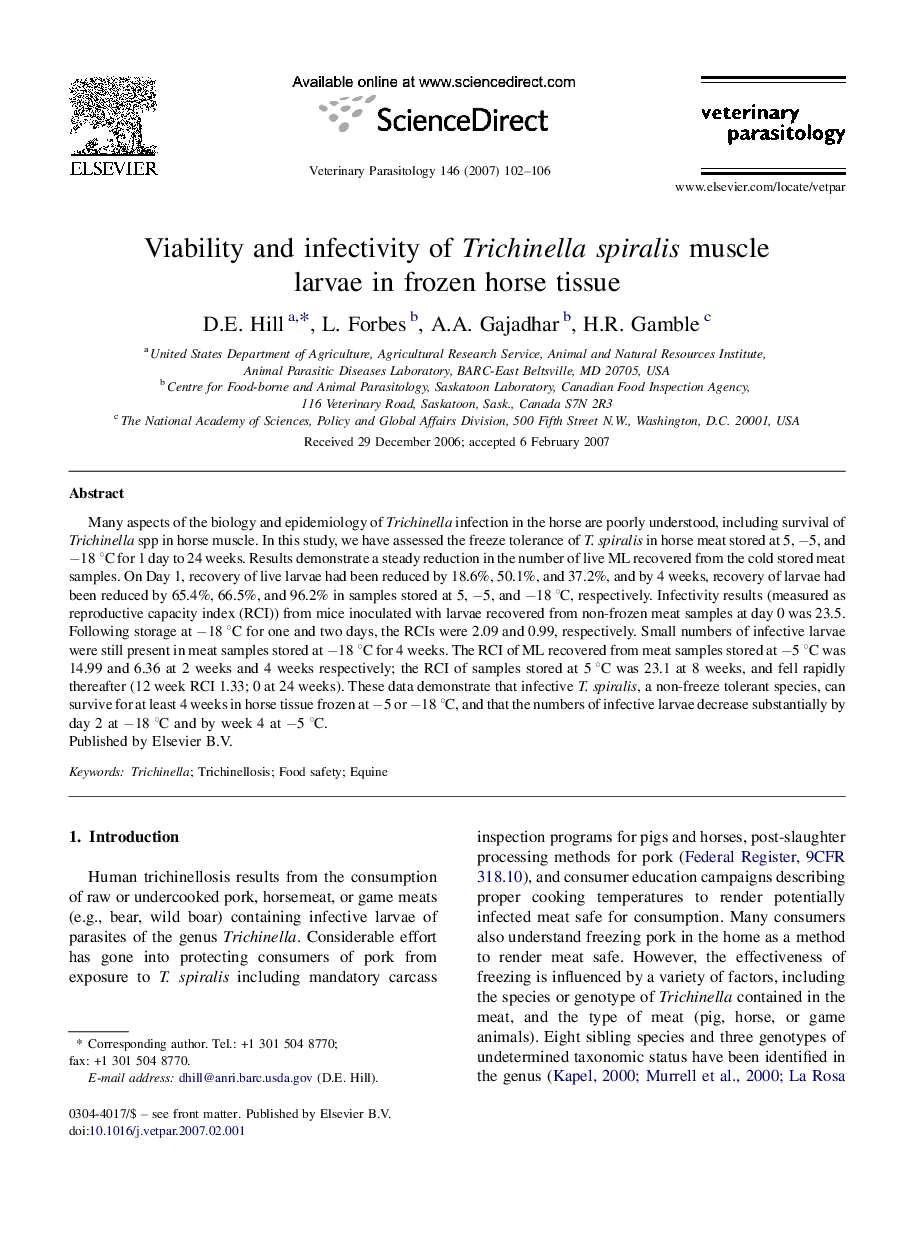| Article ID | Journal | Published Year | Pages | File Type |
|---|---|---|---|---|
| 2471964 | Veterinary Parasitology | 2007 | 5 Pages |
Many aspects of the biology and epidemiology of Trichinella infection in the horse are poorly understood, including survival of Trichinella spp in horse muscle. In this study, we have assessed the freeze tolerance of T. spiralis in horse meat stored at 5, −5, and −18 °C for 1 day to 24 weeks. Results demonstrate a steady reduction in the number of live ML recovered from the cold stored meat samples. On Day 1, recovery of live larvae had been reduced by 18.6%, 50.1%, and 37.2%, and by 4 weeks, recovery of larvae had been reduced by 65.4%, 66.5%, and 96.2% in samples stored at 5, −5, and −18 °C, respectively. Infectivity results (measured as reproductive capacity index (RCI)) from mice inoculated with larvae recovered from non-frozen meat samples at day 0 was 23.5. Following storage at −18 °C for one and two days, the RCIs were 2.09 and 0.99, respectively. Small numbers of infective larvae were still present in meat samples stored at −18 °C for 4 weeks. The RCI of ML recovered from meat samples stored at −5 °C was 14.99 and 6.36 at 2 weeks and 4 weeks respectively; the RCI of samples stored at 5 °C was 23.1 at 8 weeks, and fell rapidly thereafter (12 week RCI 1.33; 0 at 24 weeks). These data demonstrate that infective T. spiralis, a non-freeze tolerant species, can survive for at least 4 weeks in horse tissue frozen at −5 or −18 °C, and that the numbers of infective larvae decrease substantially by day 2 at −18 °C and by week 4 at −5 °C.
